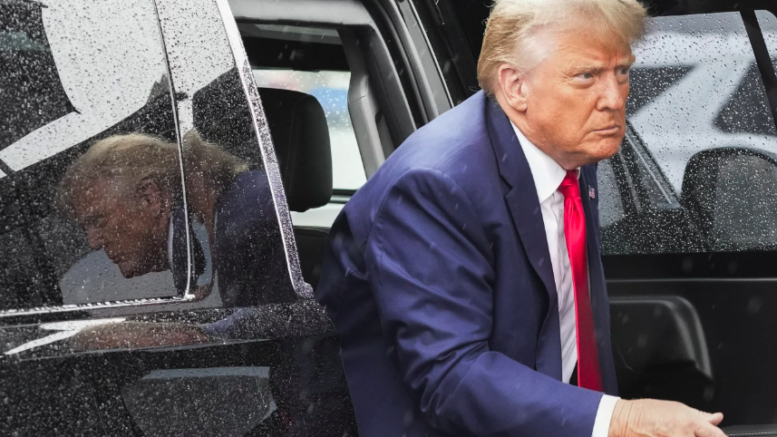Former President Donald Trump is poised to make a return to the federal courthouse in Washington after months of absence, with an appeals court scheduled to hear arguments on whether he is immune from prosecution regarding allegations of orchestrating efforts to overturn the 2020 election results. The outcome of these arguments holds significant implications for both the specific criminal case against Trump and the broader, legally untested question of whether a former president can be prosecuted for actions taken while in office. Additionally, it may pave the way for potential appeals to the U.S. Supreme Court, which, despite declining involvement last month, could reconsider later.
A prompt decision is crucial for special counsel Jack Smith and his team, who are keen to proceed with the case before the November election. Trump’s legal team, while seeking dismissal, aims to leverage a protracted appeals process that could potentially delay the trial well beyond its scheduled March 4 start date, possibly extending it beyond the election. Despite the Iowa caucuses being just a week away, Trump plans to attend Tuesday’s arguments, emphasizing the case’s importance to both sides.
Trump appears poised to use his court appearance as an opportunity to portray himself as a victim of a politicized justice system. Although there is no evidence of President Joe Biden influencing the case, Trump’s narrative could resonate with Republican voters in Iowa as they approach the presidential nomination process.
The immunity question revolves around whether former presidents, who generally enjoy broad immunity from lawsuits for official White House duties, are similarly shielded from criminal prosecution. Trump’s legal team argues for absolute immunity, contending that the courts lack authority to scrutinize a president’s official acts. On the contrary, Smith’s team asserts that presidents are not entitled to such immunity, especially when the alleged criminal conduct aims to overturn a presidential election, posing a significant threat to democratic governance.
The case alleges that Trump schemed to enlist fake electors and pressured Vice President Mike Pence to reject the electoral votes on January 6, 2021. Prosecutors argue that accepting Trump’s view of the law would set a dangerous precedent, allowing a president to engage in criminal conduct without fear of prosecution. The court of appeals, comprising Judges J. Michelle Childs, Florence Pan, and Karen LeCraft Henderson, has signaled its intention to work swiftly, but the timing of their ruling remains uncertain.
The appeal holds critical importance in Trump’s broader strategy of delaying the election subversion case until after the November election, where a potential victory could grant him the authority to influence the Justice Department’s actions. Trump faces multiple criminal cases, and while his lawyers cite a constitutional provision against double jeopardy, Smith’s team argues that impeachment acquittal does not preclude criminal charges for similar conduct. The intricate legal battle unfolds against the backdrop of a divided political landscape.

